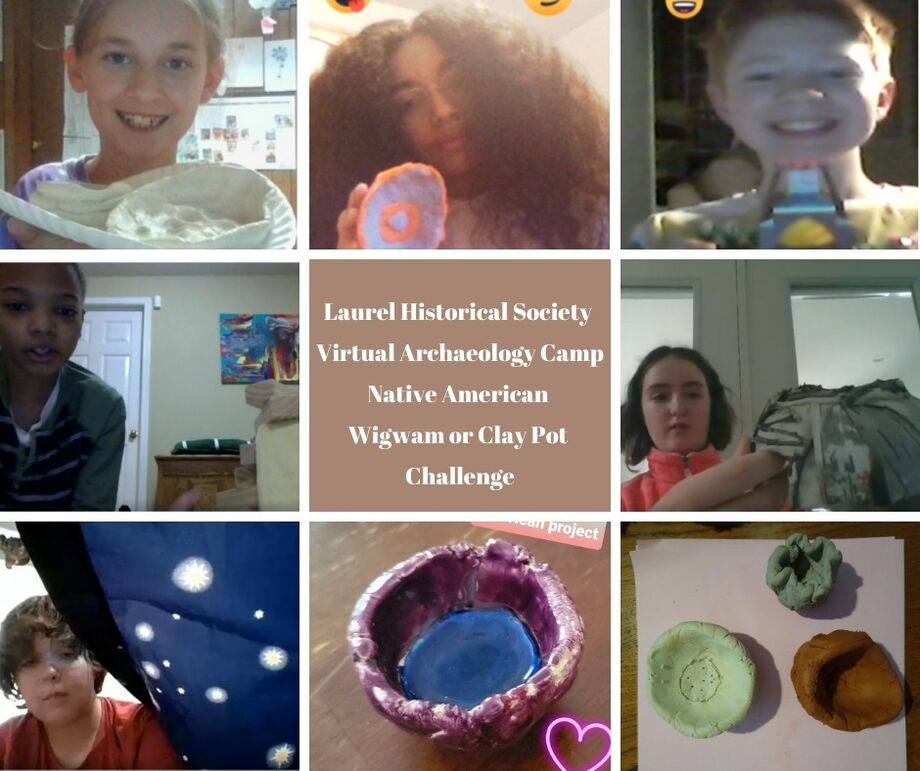Due to the Covid-19 pandemic, Laurel Historical Society was unable to provide its usual in-person summer learning experiences in 2020/2021. Thanks to NEH funding, the society hired specialists to transition two of its summer programs to a virtual setting. Pivoting quickly to provide online programs helped the society broaden its geographic reach and gain more members while offering enriching experiences for the children attending its programs.
Read More
The two programs that went virtual were an archeology program and the Rube Goldberg camp, which combines STEM content with historical context to give children an all-round educational experience. For example, children learned about the history of Laurel as a factory town with a cotton mill as well as the physics of the machines that would have powered the mill. Educators at Laurel Historical Society brought out old photographs to teach children about life from over a century ago, including a component about historical Native American life in the area. The virtual format enabled the society to broaden its geographic reach to accommodate children from all four counties that Laurel is located in.
With NEH funds, the society developed rigorous and engaging programs with the help of education specialists. Elements of what they developed continue to be used in summer programs, as well as incorporated into adult workshops and shared with educators for use in their classrooms.



